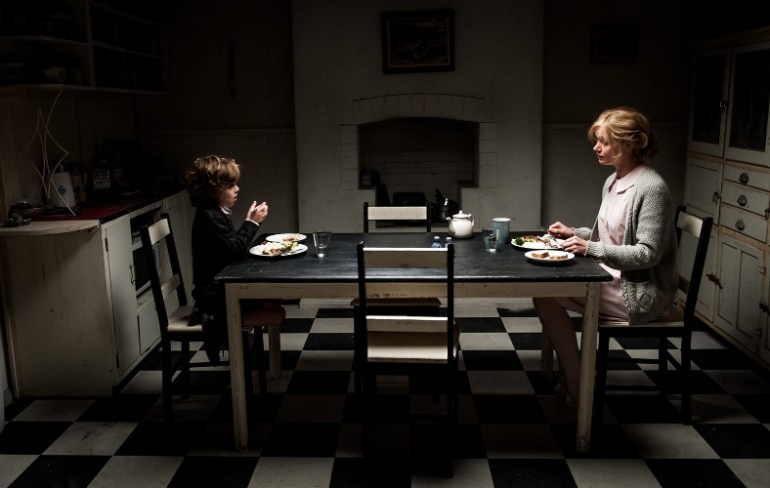Screen Australia supports features budgeted under $3m, like Jennifer Kent’s ‘The Babadook’, primarily as a talent escalator.
Screen Australia CEO Graeme Mason and chief operating officer Fiona Cameron today told a parliamentary inquiry how successive government funding cuts have impacted the agency.
“Screen Australia is working at the very top end and that means that a lot of entry-level filmmakers do get turned away,” Cameron told the Standing Committee on Communications and the Arts in Sydney, which is conducting a House of Representatives inquiry into factors contributing to the growth and sustainability of Australia’s film and television industry.
“We have had to get out of the entry-level film market as a result of funding cuts. The state governments typically work in that area and we work in the area over and above that.”
Cameron told the inquiry Screen Australia supports features budgeted below $3 million, such as Jennifer Kent’s The Babadook, primarily as a talent escalator.
Mason emphasised that last year the agency backed several low-budget features from first-time directors including Ben Young’s Hounds of Love, Nicholas Verso’s Boys in the Trees and Grant Scicluna’s Downriver.
“We worked very carefully with each on how they would make it, where it would be seen and what it would mean for their careers,” he said. “We tried to assist them and their producers meet sales agents and managers, taking a much more developmental role.”
Cameron added, “We are still developing and producing small projects whether they are documentaries or online, because that is where the next generation of talent lies.”
Mason reminded the committee the agency has reduced its overhead by 52 per cent and staffing by 48 per cent over the past seven years as government funding fell from $110 million to about $81 million.
Illustrating the pressures on its funding, he revealed that 15 feature film projects have been submitted for the next funding round, of which only two will be funded.
The execs were asked about Screen Australia’s commercial analysis on 94 films in February, which showed none had fully returned its production costs and gone into profit.
Mason pointed out a lot of the agency’s funding is in the form of grants and observed that Jocelyn Moorhouse’s The Dressmaker was a big hit in Australia but internationally “not so much.”
He also referred to Mushroom Pictures’ Molly, which was the top-rating Australian drama for the Seven network in 2015 but that “no one in Germany is rushing to see the Molly Meldrum story. The reason that we and Seven and the production company make those shows is to tell great Australian stories for Australians. They can’t be made without Australian money but they can’t be profitable in hard business terms.”
Cameron said profitability is just one component of success, some investors in a film like The Dressmaker will get their money back and Lion will go into profit.
She was asked whether lowering the threshold for the film producer offset from $500,000 to, say $100,000, would advantage producers.
She recalled that reducing the threshold from $1 million in 2011/2012 made almost no difference, resulting in only one or two more films each year.
“I don’t think that reducing it again will have the benefit that everyone thinks,” she said. “The bottom line is that the producer offset was about projects of scale and for projects that audiences will see and access.”
Mason was asked about calls by Screen Producers Australia and others to have local content quotas applied to Netflix and other streaming services.
His personal view is that there is not a “level playing field” for local players.


